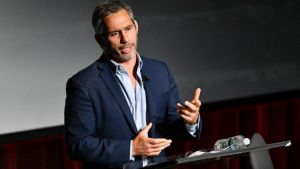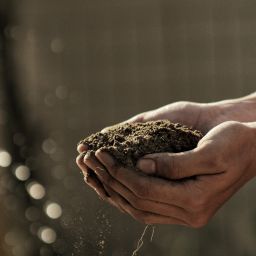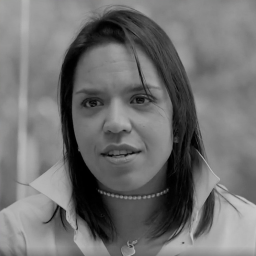Why is using sport for social impact so important to you, personally?
Even without my own personal experience with sport as a young man, it is easy to see that when used with intention, sport offers people, communities and society a strong pathway for positive change. For some it can be as simple as developing a life skill, for others, it can be a life saver. My own story was a mix of the two.
I was a terrible student – described as unteachable – but I found solace on the sports field – particularly in rugby where I gained belief and confidence in myself that I didn’t have off the pitch. Sport offered me a foundation and gave me a sense of identity. It gave me a starting point and the rest followed.
More recently, watching my two kids in lockdown has reinforced my belief in sport for positive change. My sons have both taken up a new passion for skateboarding, helping them move away from using their devices all the time and into the fresh air. I actually think it’s that element of physical risk and peril that is keeping them hooked. But they’re also learning that the more you commit to something, the more rewarding it is.
You’ve been in this space for a long time. As the world hopefully opens again safely, what role do you think sport will play in helping communities recover?
Firstly, I think there has been a cultural shift – there is a strong link between fatalities caused by the virus and obesity. I think many governments will be looking at the role of prevention in public health and as such sport has a role to play. Of course you could turn to diet and general fitness, but sport brings so many multiple benefits – mental health, emotional wellbeing, social cohesion to name a few.
Secondly, post-pandemic we will need to address the inequalities that have been exacerbated, as well as the enormous knock on effects such as the mental health crisis we’re seeing across all generations. Sport can and will play a fundamental role in helping communities recover, whether it be helping people to take care of their physical and mental wellbeing, or through communities connecting across team sports or group activity.
How important is it for businesses to work with NGOs and grassroots sports initiatives to reach out to communities?
The reality is that sport is best delivered directly into communities. There is of course the megaphone of the big sporting organisations, teams and events – those campaigns reach far and wide and do have tremendous impact – but real interventions happen through great coaches, mentors and community leaders. It is understandable why companies are drawn to the platforms that sport has to offer, as they invariably provide a greater depth and breadth of reach to communities in an authentic way.
 Nick Keller, Founder & President, Think Beyond
Nick Keller, Founder & President, Think Beyond
What are the top best-practice examples you’ve seen of how sport impact has been used to achieve business objectives?
Two of our long standing clients, ESPN and Bloomberg, have both done incredible things using sport and in very different ways. For example, Bloomberg has connected with its clients and employees through physical activity and wellbeing engagement. It also ran the 12 Bloomberg Square Mile relays from San Francisco to Shanghai. Not only has this boosted stakeholder engagement, but it has also raised over $1.6M for various local charities through The Extra Mile, the charity component which converts activity points to donations.
Showing great adaptability in 2020, Bloomberg moved everything online through a Virtual Club, helping people maintain their health and wellbeing through mini virtual events across a range of sports including cycling, running, walking, and even our first chess experience!
ESPN wanted a strategy to support growth in new markets that complemented its access through sports and leadership corporate citizenship pillars. Focusing on Latin America, it worked in partnership with regional and local sport-for-development organisations, to build accessible and sustainable safe spaces to play and learn in underserved communities. To date, ESPN Built To Play has been activated in nine locations around the world, partnering with the communities to build safe sports spaces that also run high quality sports-based programming for young people that engages, empowers and develops life skills and provides entry routes into education and employment.
What advice would you give to business leaders looking to utilise sport to advance their social purpose?
For leaders, it’s important to remember that your primary role in business growth doesn’t have to be contrary to driving social impact – the two can work side by side to support the sustainable health of society. Such an approach can and does deliver to all – shareholders, employees, clients, suppliers and customers – and will enhance your own leadership.
What do you hope to achieve through ‘Game On’?
We’re excited to be engaging with leaders across industries that we don’t usually engage with, to spark debate and discussion on how sport can play a pivotal role in positive social change. We hope to not only share our passion and knowledge on sport for social change, but in return we hope that we too can broaden our thinking, through connecting with others in Meaningful Business and drawing parallels across industries.
___
to join the ‘Game on’ working group, alongside other leaders committed to social impact through sport, apply to become a member of meaningful business here




















